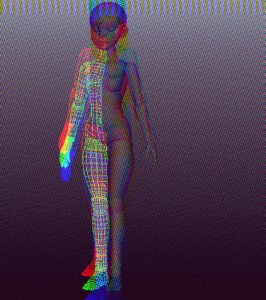We need to get over the fantasy that the complex, temporally distended symbolic performances we call “online identities” really have anything much to do with personal identity at all. A digital persona is structurally analogous to the commodity form insofar as both are fungible media of transaction. Engaging in communication or symbolic action online involves a form of signaling that is irreducible to more traditional forms of creaturely interaction. The corporate agents that largely provide and constrain spaces of online “identity” construction and performance really want us to think that our presence here is either an expression or a representation of ourselves. In part, this is because such abstract models of the self are much easier to manage and market (are we all to be Dixie Flatlines now?). The more we make the error of conflating the two – the avatar and the body, say – the more we are voluntarily selling ourselves to social media platforms. One possible response to this is simply to withdraw from (e.g.) social media, but I think such withdrawal results in a missed opportunity. If you choose to remain, however, I think it is increasingly obligatory to deploy as many experimental countermeasures as possible. Just “being yourself” on the Internet today is a form of political surrender, and what we surrender is the very form or possibility of interiority.
